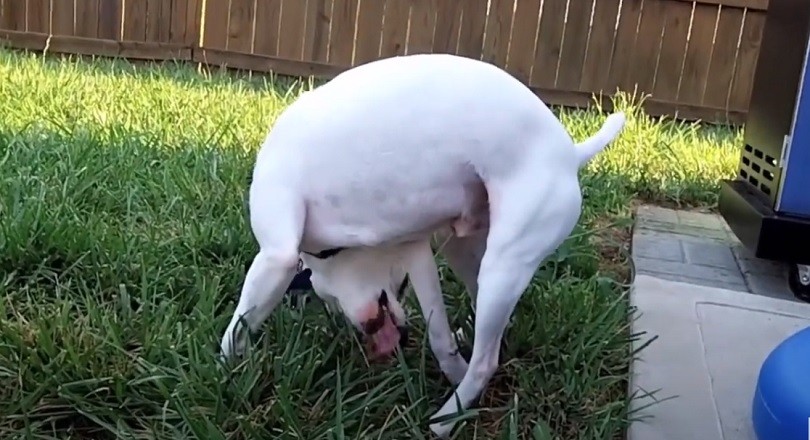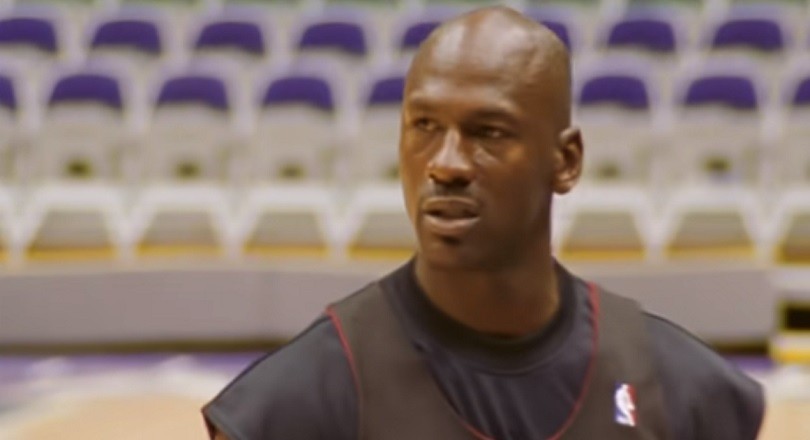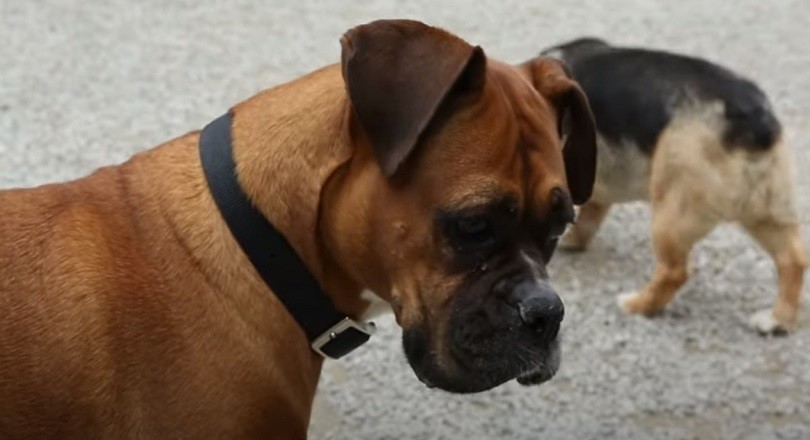Dogs might drink their pee due to dehydration or behavioral issues. It could also indicate a medical condition needing attention.
Understanding why your dog drinks its pee is crucial for their health. This behavior can stem from various causes, including dehydration, boredom, or stress. Some dogs might drink urine due to underlying medical issues like urinary tract infections or diabetes.
Observing your dog’s habits and consulting a vet can help identify the root cause. Ensuring your pet has access to fresh water and a stimulating environment can prevent this behavior. Always seek professional advice if the behavior persists, as it could signal a more serious health problem. Taking these steps ensures your dog’s well-being and happiness.
Unpacking Canine Behavior
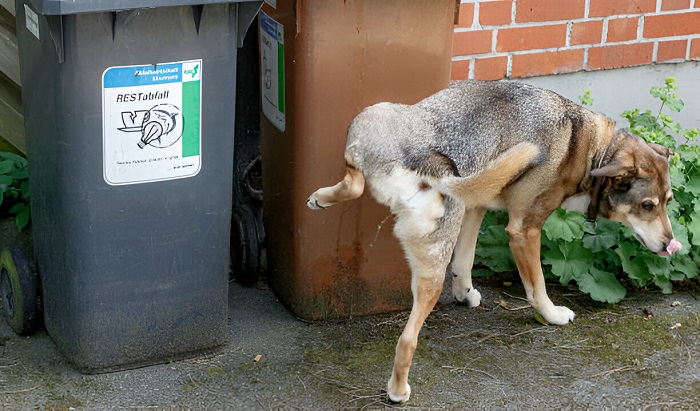
Understanding why your dog drinks his pee can be confusing. It’s essential to explore the possible reasons behind this behavior. Dogs often have instincts that may seem strange to us. Let’s dive into some common reasons for this peculiar habit.
Instinctual Actions
Dogs have instincts that date back to their wild ancestors. These actions may seem odd but have evolutionary roots. For example, wild dogs might drink urine to survive during scarce water conditions. This behavior is less common in domesticated dogs but can still occur.
Another instinctual reason could be related to cleanliness. Dogs sometimes drink pee to clean their living area. This behavior helps them avoid attracting predators. It’s an instinctive action that ensures their safety.
Marking Territory Or Attraction To Scent
Dogs have a strong sense of smell. They often use urine to mark their territory. Drinking pee might be a way to reinforce their scent marking. This behavior can help them feel secure in their environment.
Additionally, your dog might be attracted to the scent of his urine. Dogs are curious creatures and often explore scents they find interesting. Drinking urine could be a way to understand more about their surroundings.
Below is a table summarizing the key points:
| Reason | Explanation |
|---|---|
| Instinctual Actions | Behavior rooted in survival and cleanliness instincts. |
| Marking Territory | Reinforcing scent marking to feel secure. |
| Attraction to Scent | Curiosity about the scent of their urine. |
Understanding these behaviors can help you address your dog’s needs better. Always observe your dog’s actions closely. If this habit persists, consider consulting a veterinarian.
Health Implications Of Urine Ingestion
Dogs sometimes drink their urine. This behavior is concerning for pet owners. Understanding the health implications is crucial. It helps in taking timely actions.
Potential Risks And Diseases
Drinking urine can expose dogs to harmful bacteria. These bacteria may cause infections. Common risks include:
- Urinary tract infections (UTIs)
- Kidney problems
- Digestive issues
UTIs can lead to more serious health problems. Kidney issues can be life-threatening. Digestive problems might cause severe discomfort.
Parasites can also be transmitted through urine. This can lead to further complications. It’s important to monitor your dog closely.
Signs Of Underlying Health Issues
Urine ingestion might indicate underlying health issues. Watch for these signs:
- Excessive thirst
- Frequent urination
- Weight loss
- Fatigue
Excessive thirst can be a sign of diabetes. Frequent urination may indicate a urinary problem. Weight loss and fatigue could signal kidney issues.
| Symptom | Possible Health Issue |
|---|---|
| Excessive thirst | Diabetes |
| Frequent urination | UTI |
| Weight loss | Kidney disease |
| Fatigue | General malaise |
If you notice these signs, consult a vet. Early detection can prevent serious problems.
Prevention And Intervention Strategies
Preventing and intervening in your dog’s unusual habit of drinking his pee can be managed effectively with the right strategies. This section will guide you through some practical techniques and when to seek veterinary help.
Training Techniques To Discourage The Habit
Training your dog can help stop this behavior. Here are some effective methods:
- Positive Reinforcement: Reward your dog for avoiding pee. Use treats or praise.
- Redirect Attention: When you see your dog about to drink pee, distract him with a toy or command.
- Consistent Commands: Use commands like “Leave it” to train your dog. Be consistent with these commands.
- Proper Hydration: Ensure your dog always has access to fresh water. This can reduce the urge to drink pee.
When To Consult A Veterinarian
If training doesn’t work, a vet’s advice may be necessary. Here are signs to watch for:
- Frequent Pee Drinking: If your dog drinks pee often, it could be a sign of a health issue.
- Changes in Behavior: Sudden changes in your dog’s behavior might need medical attention.
- Health Symptoms: Symptoms like vomiting, lethargy, or weight loss require a vet’s diagnosis.
A vet can check for underlying conditions. They can also give you tailored advice for your dog’s specific situation.
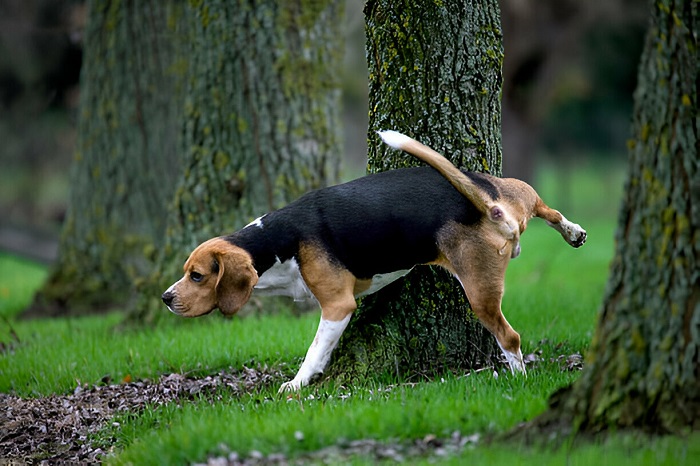
Frequently Asked Questions
Why Is My Dog Drinking Her Urine?
Your dog might drink her urine due to dehydration, stress, or a medical issue. Consult your vet for advice.
Is It Bad For A Dog To Drink Urine?
Yes, it is bad for a dog to drink urine. It can lead to infections and other health issues. Ensure your dog has access to clean water.
Why Does My Dog Lick His Pee Area?
Dogs lick their pee area to clean themselves. It can also indicate irritation, infection, or urinary issues. Regular vet check-ups help.
Why Do Male Dogs Drink Pee?
Male dogs drink pee to investigate scents. They gather information about other dogs through pheromones in the urine.
Why Does My Dog Drink His Pee?
Dogs may drink their pee due to medical or behavioral issues. Consult a vet for proper diagnosis and treatment.
Conclusion
Understanding why your dog drinks his pee is important. It could be a sign of health issues or behavioral problems. Always consult your vet for professional advice. Address any underlying issues promptly to ensure your pet’s well-being. Proper care and attention can help prevent this behavior in the future.

